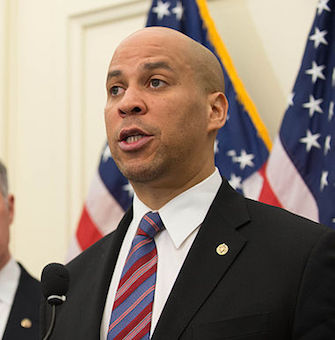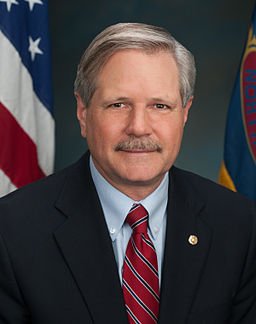Over the past few months it seems that Washington has been abuzz with drones. The topic of regulatory issues infringing on the ability of unmanned aerial vehicle (UAV) manufacturers to develop products as quickly as they’d like is a story we’ve been following since the beginning of 2015 here on IPWatchdog. UAVs for hobbyists made a decent showing at this year’s Consumer Electronics Show in Las Vegas but many proposed commercial applications have been grounded by rules put in place this year by the U.S. Federal Aviation Administration, especially those governing line-of-sight operations which require a drone operator to keep their drone within their natural line of vision..
Recently the U.S. Senate Committee on Commerce, Science, & Transportation held a hearing on drones, which focused on ways that the federal government could encourage further incorporation of drones into the National Airspace System (NAS) with the cooperation of the FAA. One strong voice emerging from the debate was that of Sen. Cory Booker (D-NJ), who was particularly unnerved at the slowness of drone innovation in the United States. “We’re still behind in pace and frankly there have been no mishaps,” Booker said at that hearing.
It’s little surprise, then, that we would see legislation introduced and co-sponsored by Sen. Booker which seeks to bridge the gap between safety concerns espoused by the FAA and greater freedom to use drones for conducting business. The bill, known as the “Commercial UAS Modernization Act,” is co-sponsored by Sen. John Hoeven (R-ND) and amends certain sections of the FAA Modernization and Reform Act of 2012 in regards to commercial operation of unmanned aerial systems (UAS).
Proponents of commercial drone tout the economic benefits of further development, arguing that the UAS industry could produce as many as 100,000 jobs and as much as $82 billion in overall economic impact in the decade following full commercial adoption of the technology. The legislation is already supported by drone industry groups representing companies like Google, Amazon.com and Lockheed Martin. The bill seeks to create an interim rule providing basic guidelines for commercial use and testing of drones and increase focus on safety by creating a deputy administrator position within the FAA dedicated to safe integration of UAVs into the NAS. The bill also proposes a framework for the registration and use of unmanned aerial systems for commercial purposes.
The legislation is being proposed on the heels of an FAA announcement regarding a program established by the regulatory agency to study urban and beyond line-of-sight drone operations. The Pathfinder Program was unveiled by FAA Administrator Michael Huerta at a May 6th press conference. This initiative will involve FAA partnership with a trio major American companies to research three areas of focus: CNN, which will look into whether the use of UAS for urban news gathering is safe and feasible; PrecisionHawk, a drone manufacturer which will explore extended line-of-sight operations in rural areas for agriculture applications; and BNSF Railroad, which will test beyond line-of-sight systems for inspecting rail infrastructure in rural and isolated areas.
It bears noting that the language of the proposed Commercial UAS Modernization Act does not offer many immediate concessions to Amazon and others who want to begin large-scale deployment of drones for retail delivery and other activities with an extended geographical scope. UAS operating restrictions imposed by this law still require line-of-sight operations, prohibits nighttime drone use, imposes a maximum altitude of 500 feet and requires prior authorization from the air traffic control which has jurisdiction over the airspace in which the drone will operate. The legislation would also impose accident reporting guidelines requiring any drone operators to notify the FAA of mishaps within two days of the incident.
Importantly, the bill would put in place a process through which exemptions to the previously noted operation restrictions. Program exemptions such as beyond line-of-sight operation, flights during heavy weather conditions and drone aircraft heavier than the 55-pound maximum currently allowed by the FAA. The bill charges the newly created deputy administrator with expediting exemptions within 90 days of the legislation’s enactment.
The deputy administrator position, officially the Deputy Associate Administrator for Un-Manned Aircraft, would be appointed by the FAA’s administrator and serves as a point person for establishing a research and development plan for the safe integration of unmanned aircraft into the NAS. The deputy administrator would also be responsible for resolving issues with UAS spectrum as well as any barriers to beyond line-of-sight operation, payload carriage or automated UAS implementation.
One other intriguing aspect of the bill is the air traffic management pilot program which would be operated as a partnership between the FAA and NASA. The joint program would research and test a new regulatory structure for drone operations, including commercial ones, for operations reaching up to 1,200 feet in altitude.
The proposed bill comes as welcome news to large companies like Google and Amazon which have been looking for ways to start developing beyond line-of-sight flight plans and other complex operations. The rules may, however, be less well suited for smaller UAV innovators. As an article published by Motherboard points out, the Booker/Hoeven legislation will require commercial drone operators to register for a license whereas currently allowable commercial drone operations operate in a non-licensed legal grey area. The undisclosed registration fees that would be put in place for licensing is also a cause for concern among small commercial players with limited financial resources.

![[IPWatchdog Logo]](https://ipwatchdog.com/wp-content/themes/IPWatchdog%20-%202023/assets/images/temp/logo-small@2x.png)



![[Advertisement]](https://ipwatchdog.com/wp-content/uploads/2024/04/Artificial-Intelligence-2024-REPLAY-sidebar-700x500-corrected.jpg)
![[Advertisement]](https://ipwatchdog.com/wp-content/uploads/2024/04/Patent-Litigation-Masters-2024-sidebar-700x500-1.jpg)

![[Advertisement]](https://ipwatchdog.com/wp-content/uploads/2021/12/WEBINAR-336-x-280-px.png)
![[Advertisement]](https://ipwatchdog.com/wp-content/uploads/2021/12/2021-Patent-Practice-on-Demand-recorded-Feb-2021-336-x-280.jpg)
![[Advertisement]](https://ipwatchdog.com/wp-content/uploads/2021/12/Ad-4-The-Invent-Patent-System™.png)






Join the Discussion
No comments yet.